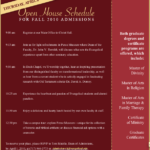 Do you have time to read this?
Do you have time to read this?
That may depend on what language you speak.
Have you ever felt like when you’re creating or otherwise “in the zone” you pass into a strange pocket in the space-time continuum (or whatever) where the passage of time appears to almost be standing still. Then, when you’re jolted from your pocket, you find that time has actually moved along far faster than you would have guessed.
That is likely what it’s like (all the time) for someone living near the equator. More on that in a moment.
There’s something about relativity here and we’ll unpack it.
Consider too, the other side. Sometimes you are very conscious of time maybe because you’re in a bad meeting or you’d rather be somewhere else and the hands on the wall clock seem to barely move. That is because you are perceiving time in relation to other things and not experiencing is as it passes.
So, it seems experienced time works in an eerily timeless way (having no easily determinable passage of time), and referred to time (Ex. “That man spoke for 20 minutes.”) is a measurement or qualifier of time, but not at all a direct experience of time. It refers to only a memory of certain period, but one that was not recognized necessarily in the moments in which it truly happened. Time is marked outside of itself. So…
Time is never really ordinary.
Perception is powerful. Here’s some potent proof.
Time near the Equator:
Residents of places near the equator experience time completely differently than people who live in temperate climates. You already know this to be true.
Maybe you’ve heard of “island time”…
…if you’ve ever vacationed on a warm tropical island, things just mosey along. Maybe things will get done and maybe not. People get to things when they do, or whatever. “Hey, Relax Mon”. It can be a hassle when you’re not used to it. However, time is literally experienced differently.
It’s not the heat bringing a lack of motivation. They are used to the heat. It’s not a mere lack of a work ethic. It’s not simply enjoying the weather too much to be bothered with revving up to tackle hectic things.
It turns out that the passage of time is harder to discern because markers are missing.
Most often, for humans, change punctuates time in our awareness.
An event (accident, holiday, birth, death, full moon, dawn, solar eclipse, victory, loss, etc.), or a change in weather are the most common markers. With more changes–especially ones that involve rain and snow, brilliant leaf color changes, or a blast of Spring blooming–that means that our perception of time’s passage are further clarified. Our memories are literally shaped differently and therefore our brains are, at the cellular level, wired differently. Perception is relative. Variety, repetition, and influence change the brain’s capturing of data which determines the comprehending of time. It affects the awareness people have and the activities people undertake.
Seasons, and the things that are attached to them (growing of food, for one example) make the ability to plan more perceptible and pronounced. Need to buy wheat seed for Spring in a few months? Better save now. Plants grow all-year-round? Then, nevermind.
Residents of equatorial climates do not experience the massive change in seasons, plus they do not experience the great shortening of daylight either. For them, unless they’ve been influenced by outsiders, the passage of time happens in the present. Right now, or it’s not really real.
For pole-dwellers (people living in the northern and southern regions of the globe) time is usually experienced two ways:
1. through remembering past events
(A locked down thing that doesn’t truly exist except in the mind)
Or
2. through planning (projecting to the future to a not yet real time and place).
Pole-dwellers spend far less time–“Zen-like”–in the here and now.
In fact, being “stayed in the present” can be discredited as somehow wasteful by those who like to plan. Interesting argument of which is wasteful, and why, right?
For pole-dwellers it’s an ironic thing too, because if your mind is not attached to the present, you essentially are not fully aware of living at all in real-time…Instead you are aware of life passing in relation to something else. Time perhaps is more like a point on a map–over there–more than an experience. Perhaps a counterfeit experience compared to the real thing or real-time? I’m not sure.
Or on the other side, near the equator, planning might seem pointless or amorphous. A sort of figment.
• Living solely in the present has disadvantages too. It comes packaged with a (undetectable) lack of impetus that can help us make all manner of changes or improvements possible. The checkpoints are missing. Our interaction with time movement is different. It passes like “being in the zone” or perhaps like standing midstream in an ever-changing flow of water. Motion. Life is in real-time and un-captured.
• Living in the future or past (as I have been trained to do) is like staring off at fixed but ultimately untouchable points. Triangulation.
I mainly live in the “trigonometry of time”. Do you?
Certain cultures actually have no form of future tense.
(Did you absorb that?)
For them, there is no language or solid way to truly express or encapsulate something ahead of this very moment.
BOOM. That’s crazy different.
Sicilian and ancient Hebrew are just two examples.
Now brace yourself. If you haven’t guessed already…
Yes, that means anytime you hear the words “shall” or “will” in Jewish/Christian scripture you are hearing the imposition of your own cultural and linguistic bias placed onto the original text and meaning.
(Thinking of the implications could just blow your mind, right? Now, go ahead, open your Bible and find a few misleading verses and re-understand them.)
Note: New Testament Scripture was written in (ancient) Greek and does contain a future tense. It was however based on beliefs and texts of people who did not have a native reference to an equivalent future tense option nor the applied meaning future tense indicates, necessarily or at all.
Binary vs. the not yet
Often in equatorial geographic regions, there literally is no way to really say “I will work.” Instead it’s “I work.” Binary. Sometimes inflection is used to draw a sort of distinction or a qualifier, like referring to a (future) month or day. That’s a watered down communicative incident compared to the full use of future tense we take for granted in English, and the closest language to English: German.
The language difference has even been studied scientifically to see if things like breaking habits (like smoking), or the activity of saving or spending money, or gaining weight are different because of language. Click the link to see the results.
What are some of your thoughts on the passage of time, future tense, or living right now?
Whew. Ice pack for my brain, please.
IF this post was interesting, please like or share it…now. (In real time.) :)





